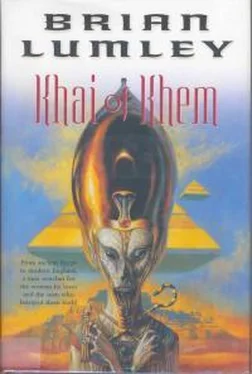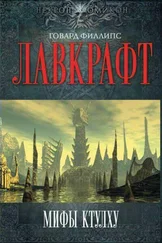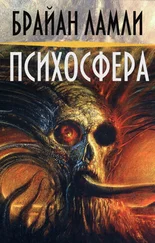As noon approached and the sun drew near the zenith, the merchants collapsed their many stalls and bundled up their wares, the crowds drew back from the paved road that reached around the pyramid’s base and along both sides of the great ramp, and there was sudden movement atop the high plateau of the east face. There, where the ramp merged with the lip of the plateau, the Black Guard had drawn aside; and now, with a blare of brazen trumpets, the rest of the guardsmen snapped to attention and lifted their spears in the royal salute. This was the moment for which Khai had been waiting, when Pharaoh would show himself to his people.
Khasathut—a man, and yet a god—descendant of those Great Gods from the sky who came in their golden pyramid when the tribes of Khem were mere savages and left their seed to take root in the fertile valley of the Nile. Legend had it that the first gods who grew from that seed were weak and died young, and that many generations passed before there grew to old age a Pharaoh of that alien stock. This was because the gods had mated with the daughters of mere men, which had severely weakened their blood. By the time the strain was strong again, most of the wisdom of the sky-gods had been lost forever, for none had lived long enough to learn it and pass it on. Thus, only the legends now remained. And now, with his own eyes, Khai was about to see one of those legends—or the sole surviving descendant of them—for himself.
The Ibizins had an excellent view of the entire affair. They were seated along with many other high-ranking personages and their families on cushioned chairs placed about marble tables on a dais high over the heads of Asorbes’ less prominent citizens. Even so, they had to crane their necks to look up at the plateau’s rim where the Pharaoh now appeared.
Khai, because he had been distracted by a distant trumpeting of elephants from somewhere to the rear of the pyramid, did not actually see the figure of the Pharaoh come into view—but he heard the sudden cessation of all mundane sounds, and then the concerted sigh that went up from many thousands of throats. Only then did Khai turn his widening eyes up to the incredible golden figure on the plateau high above.
Towering head and shoulders over the huge black guardsmen flanking him, Khasathut was massive! In a flowing robe of royal golden-yellow, the God-king stood at the head of the great ramp and looked out over Asorbes, over all Khem. He slowly turned his huge head to the south, as if looking far beyond the borders of Khem to the unseen sources of the Nile, then to the north, toward the GreatSea and beyond, and finally he faced east and inclined his head downward to gaze upon his people. So huge was Pharaoh that Khai fancied he could make out his features: radiant, benign and beautiful.
Then the awesome figure slowly held up its arms and its robe fell from incredibly broad shoulders; and again that mighty sigh, that gasp of wonder, went up from Khasathut’s subjects. The sun was reflected dazzlingly from golden armor that covered his body and limbs, from a golden crown that sat upon his head, and thousands of eyes watered as they stared at a skirt embroidered with hundreds of glittering jewels.
“Why!” Khai thought out loud, his voice the merest whisper, “his arms and his thighs, they must be like trees!” He had seen huge Nubian wrestlers fighting bouts for their Khemite masters in the market squares, but even they would be dwarfed by the massive figure atop the ramp who now drew the crowd’s amazed and adoring attention. And why shouldn’t they adore him? His prosperity was Khem’s prosperity, wasn’t it? And if ever a man looked like a king, surely the Pharaoh was that man. And if a king could be a god, then most certainly was Khasathut the God-king himself!
And now the members of the Black Guard were replaced on the high plateau by the royal trumpeters, whose molten instruments blared out in unison once more to herald the commencement of Pharaoh’s parade. As a bellowing of elephants answered the call of the trumpeters, so a huge throne was pushed forward from behind the great golden God-figure and Khasathut seated himself (rather stiffly, Khai thought). Then, with a vast swaying of trunks and a pounding of great gray limbs, the Pharaoh’s two hundred elephants appeared from behind the pyramid, maneuvering along the base of the north face and down the paved road toward the foot of the ramp. Wearing horned helmets of bronze and armored about their great knees—driven by tiny, big-bellied pigmy riders who sat the mighty beasts bareback—the huge pachyderms were the most fearsome creatures that Khai had ever seen.
No sooner had the elephants passed the dais of the dignitaries than Khasathut’s archers appeared, jogging in ranks of ten immediately in the wake of the beasts. Following the bowmen—who numbered no less than fifteen hundred—came the infantry, rank upon rank of them, all in tens. Sixty thousand men of Khem and thirty thousand from neighboring Syra, Arabba, Therae, Daraaf and Siwad trotted by in strict military precision; and indeed their numbers were such that they took almost an hour to pass. And each and every man of them carried a bronze sword and a shield of hide patterned with bronze studs.
Kush and Nubia were the only absentees; for while certainly there were Kushites among the Pharaoh’s slaves, no man of Kush would ever volunteer to become a mercenary in Khasathut’s army. No, rather death than that. The Kushites were wild and wilful, hill-dwellers in the main who preferred the freedom of the heights to the lowlands and the oppression of Khasathut’s border patrols and his Arabban slavers. The God-king had sworn that one day he would see Kush overrun and crushed, but until that day he would have to be satisfied with his few Kushite slaves. And even the children of such were unruly and unreliable, and certainly they could never be trained for military service—not in the Pharaoh’s army, at least.
As for Nubia: Pharaoh had his Black Guard, but none of them were of good birth. They were all the sons of slaves, chosen for their size and trained from birth to attend Pharaoh’s every whim. If he so much as snapped his fingers in command, each and every last one of them would fling himself from the plateau. He was also supposed to have five thousand trained warriors—an impi of terrific fighting prowess—but these had been withdrawn by their king in Nubia six months ago (ostensibly to be trained in the jungles of their homeland) and their return was already overdue.
So the parade passed. The infantry was followed by a thousand specialist spearsmen and seven hundred marksmen with their slings; and finally there came the generals five-square: twenty-five massive military commanders, all carrying their individual banners of nation and regiment, pausing en-masse where Khasathut could see them from on high. They dipped their colors low three times before him, and in return he held out his left arm over them, saluting them. Then they snapped to attention and turned to follow the army along the base of the great ramp.
All of these men—well over one hundred thousand of them—and the elephants, too, they had all been mustered unseen to the west of the great pyramid, in the hugely sprawling barracks that housed them when they were not maneuvering. But now the military side of the day was almost done. Now there only remained the Choosing of the Brides, and finally the presentation to the Pharaoh of all personages of note. Then all would be done except for the feasting and drinking, by which time Khasathut would have retreated back into the pyramid’s secret ways with his new wives.
By then, too, the Ibizins would have returned home, preferring to celebrate in the privacy of their own splendid house near the East Wall. Harsin Ben did not yet know it, but on this occasion he would have precious little to celebrate. …
Читать дальше








